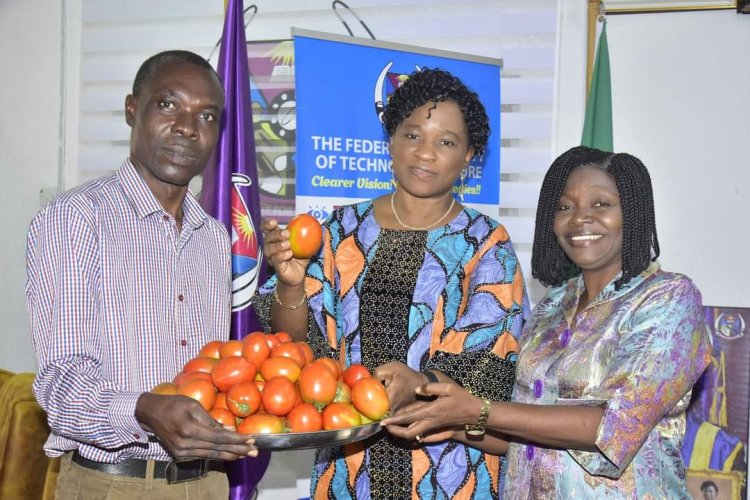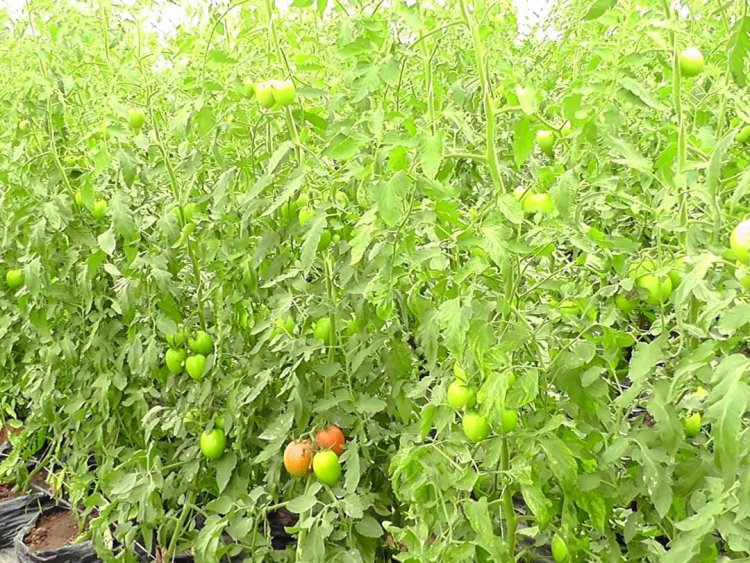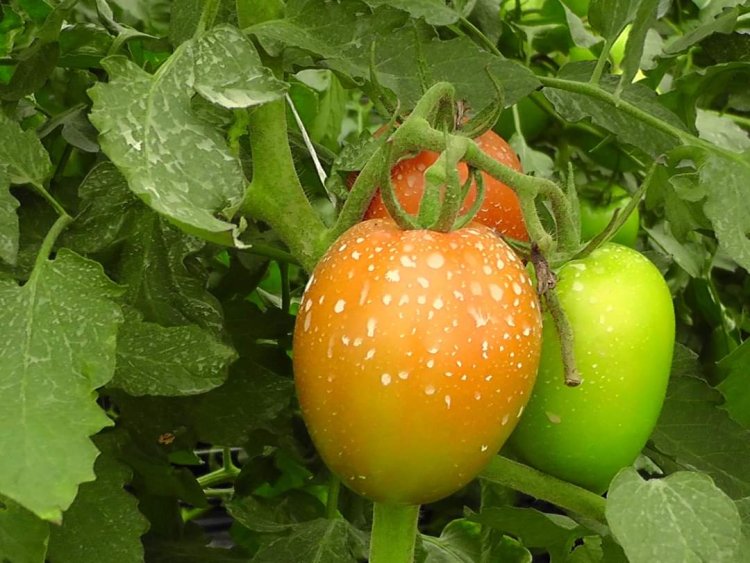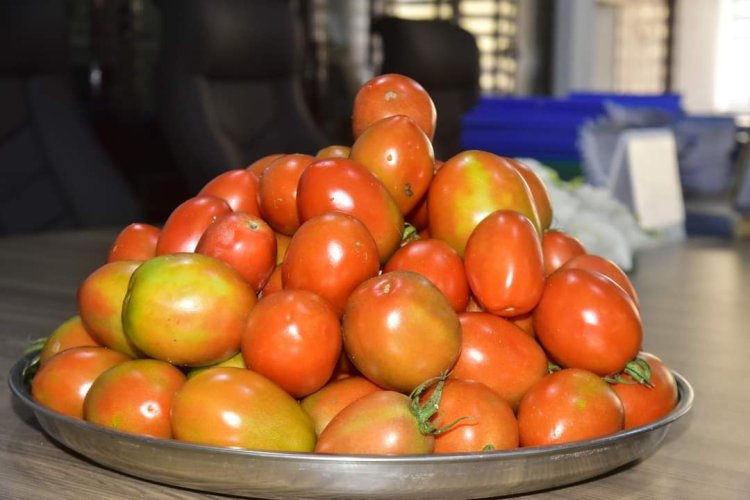FUTA Expands Cultivation of Eva F1 Tomato, Enhancing Local Agriculture and Food Security
The Eva F1 tomato is noted for its size, being five times bigger than conventional varieties, and its ability to produce paste four times more than typical tomatoes. Additionally, this variety remains fresh for up to two weeks post-harvest.

The Teaching and Research Farm of the Federal University of Technology, Akure (FUTA) has launched a large-scale cultivation of the Eva F1 Tomato, a variety significantly larger and more productive than standard tomatoes available in Nigeria.

The Eva F1 tomato is noted for its size, being five times bigger than conventional varieties, and its ability to produce paste four times more than typical tomatoes. Additionally, this variety remains fresh for up to two weeks post-harvest.

Professor Oluwatooyin Oludahunsi, Dean of the School of Agriculture and Agricultural Technology, presented the tomatoes to Vice Chancellor Professor Adenike Oladiji and the farm coordinator, Mr. Adeniyi Samuel. Professor Oludahunsi noted that the tomatoes are grown in greenhouses and sold to the FUTA community and nearby residents.

Professor Oladiji praised the initiative, highlighting that the School of Agriculture and Agricultural Technology (SAAT) is also providing practical field training for selected farmers and agripreneurs on greenhouse production of the Eva F1 tomatoes and other vegetables. She emphasized that such efforts contribute to the nation's food security and should be sustained.
The Eva F1 tomato was introduced to FUTA in 2017, with seeds initially sourced from Israel and now obtained from Dizengoff, Nigeria. The tomato matures in approximately two months in a greenhouse, with a total cultivation period of about 90 days from nursery to harvest, and a potential yield of 1-2 tons per production cycle.
The public and farmers interested in purchasing seeds or seeking guidance on greenhouse and open farm planting are encouraged to contact the Teaching and Research Farm at FUTA for more information.





